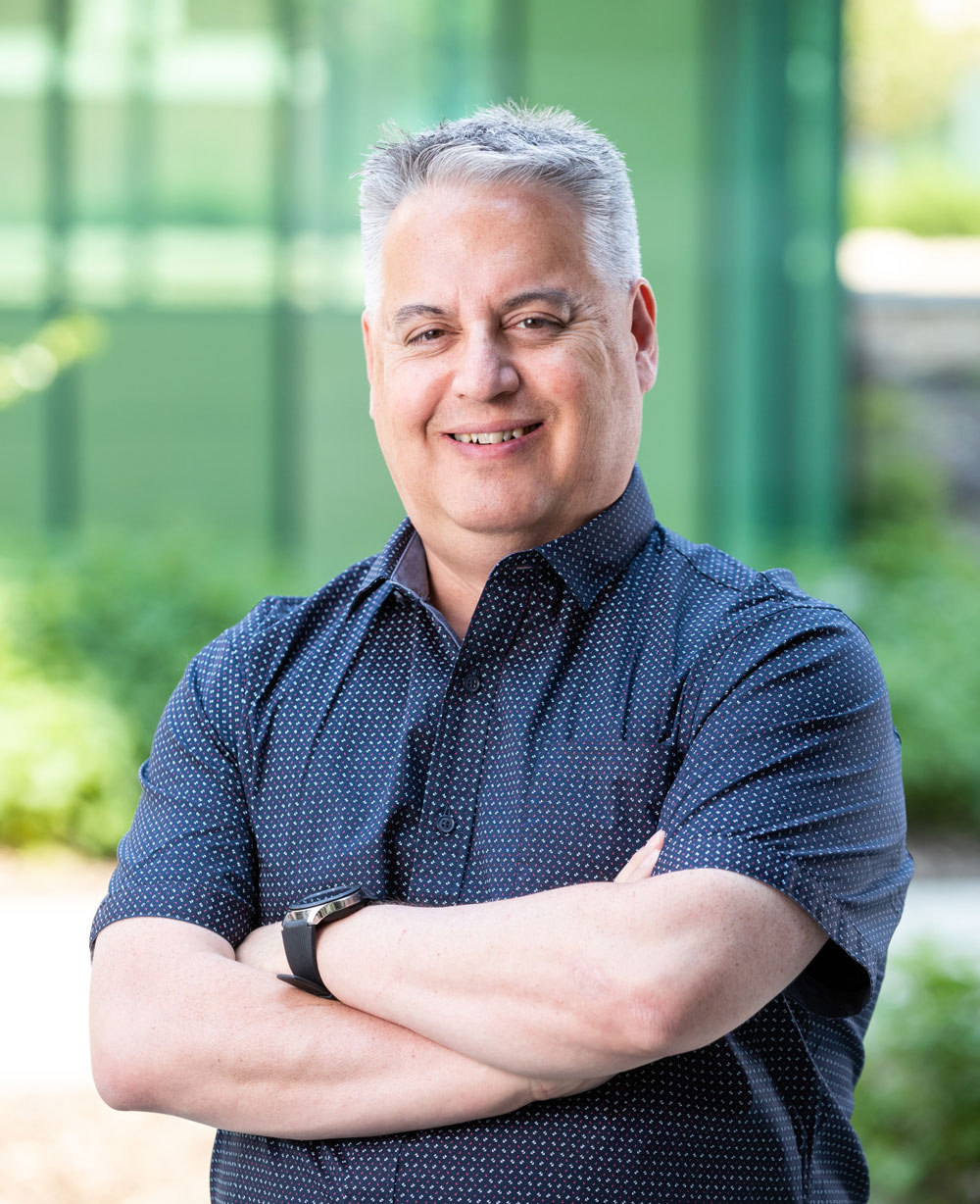
Department of Drama Assistant Professor Kenneth T. Williams honoured for his contributions to Canadian theatre
Sitting in his office in the Department of Drama, Kenneth T. Williams ('90 BA, '92 MFA) describes the feeling of returning two years ago as an assistant professor, more than two decades after earning his Master's degree in Playwriting.
"You kind of see your ghost walking around," he says. "You sometimes gasp a little bit."
If Williams could stop that ghost of his younger self and tell him what was in store for him between then and now, he might gasp a bit too.
Back then, Williams was a young writer with big dreams, trying to find his place as he completed a BA with a specialization in English. "My plan was to be a novelist," he recalls, but when that aspiration wasn't panning out, he followed a friend's recommendation to try a playwriting course. "I almost instantly fell in love with it and realized this was a type of writing that really spoke to me and felt very natural," he says. "That's when everything shifted radically."
Williams forged ahead into the graduate-level playwriting program. To make up for his lack of theatre experience, alongside his studies he was "reading like crazy" and seeing as many plays as he could. When he graduated in 1992, Williams - who is Cree, hailing from the George Gordon First Nation in Saskatchewan - became the first Indigenous person to earn an MFA from the Department of Drama.
Fast forward to today, and Williams is one of the country's best and most-produced playwrights, regarded as a "major force in Canadian theatre." His work is known for exploring issues faced by Indigenous communities, such as the foster care system, residential school abuse and systemic racism, often using humour to ease audiences into uncomfortable subject matter. His best-known play, Café Daughter, was nominated for a Sterling Award for Outstanding Production in 2016 and Williams received a Saskatchewan Arts Award for Artistic Excellence in 2017.
But the road Williams travelled to arrive at this success was long, often bumpy and always unconventional. "If you look at my career path, it's a guidance counsellor's nightmare," he says with a laugh.
After leaving the U of A, Williams' playwriting dreams were deferred while he pursued other, more immediate opportunities - like being a drummer in a rock band and finding work as a journalist. The latter would turn into a successful and lengthy career: Williams worked for the Aboriginal publications Windspeaker and Saskatchewan Sage, and eventually became a member of the first TV news crew for the Aboriginal Peoples Television Network, where he spent six years.
During this time, Williams never stopped writing plays. His first professional production, Thunderstick, took the stage in Saskatoon in 2001, and the following year in Toronto, where Williams vividly recalls that it "bombed horribly." Undeterred, he pushed forward and produced well-received works like Suicide Notes and Three Little Birds, until finally, around 2008, "something phenomenal" happened.
A production of Thunderstick starring fellow U of A alumnus Lorne Cardinal and Craig Lauzon, in which the two actors traded roles on alternate days, was a huge hit. "Thunderstick reborn packed houses across Western Canada," Williams says. "That play signaled my career taking off."
With the momentum of his newfound success behind him, Williams knew it was time to take a chance on devoting himself to a career in theatre. "I pulled the cord and jumped," he says. His days as a journalist would stay with him, however, inspiring many of his stories - in particular, Gordon Winter, In Care, and Café Daughter.
Alongside his playwriting, Williams has also earned a reputation as a dedicated and inspiring teacher. As the Playwright-in-Residence in the University of Saskatchewan's drama department for six years, his influence led to many new works being written and staged, including some that toured nationally. He also spent a year as Interim Artistic Director of the Gordon Tootoosis Nikaniwin Theatre, a major Indigenous theatre company in Saskatoon, where he mentored young Indigenous artists.
Now, Williams' position at the U of A is allowing him to continue working with emerging artists back where his own journey began. One thing he has learned since his time here, and now conveys to his students, is to never underestimate the power of persistence.
"You've got to keep re-examining your life: where are you, what are you doing, is it working," he says. "And if it isn't working, trying something else. You just keep pushing."
As Williams keeps pushing forward, finding a balance between teaching and working on two new productions, he also knows that - as the first full-time Indigenous professor in the department - his role has a larger significance.
"This is a position with a lot of privilege to it. I'm trying to use that privilege to make room for more Indigenous scholars to get in here," he says. "The way institutions change is when we get in and start taking positions of leadership."